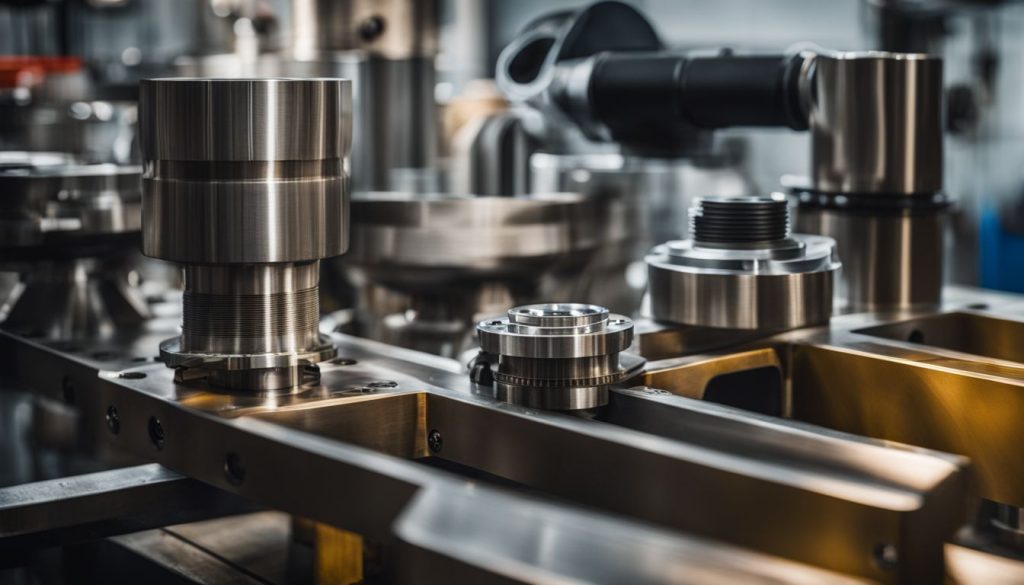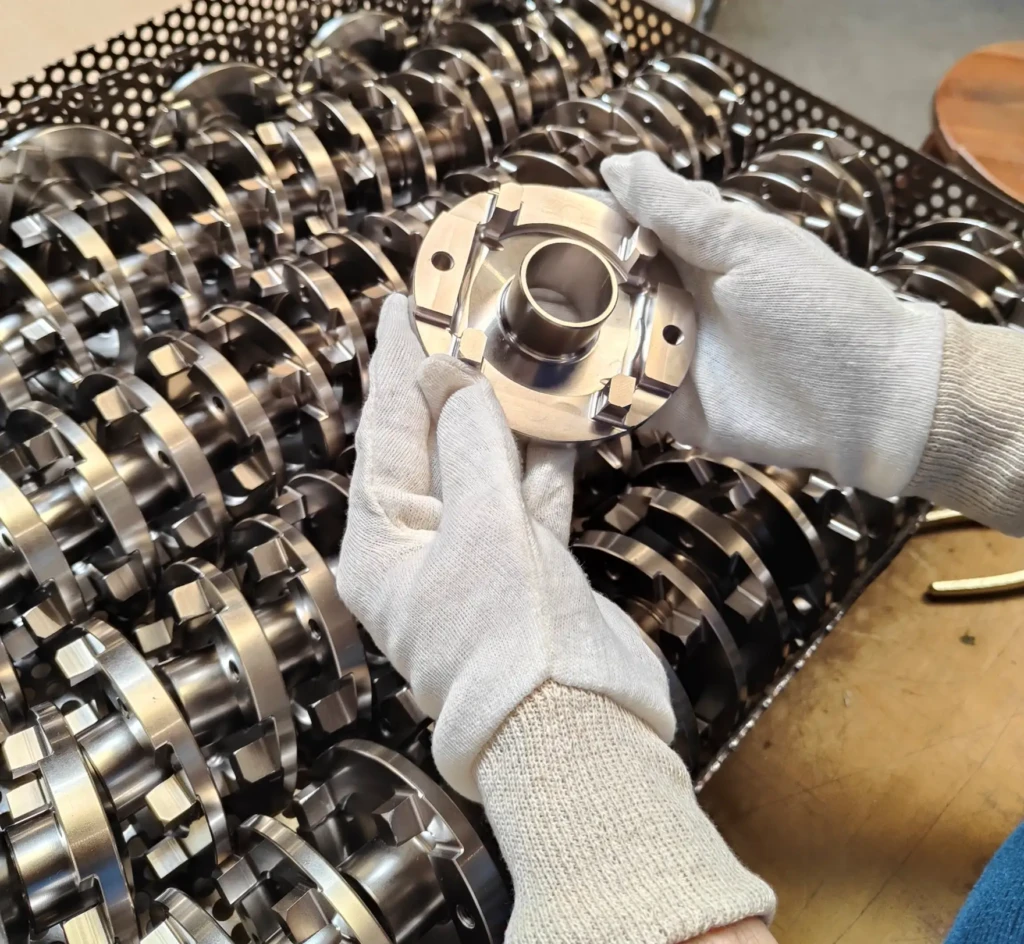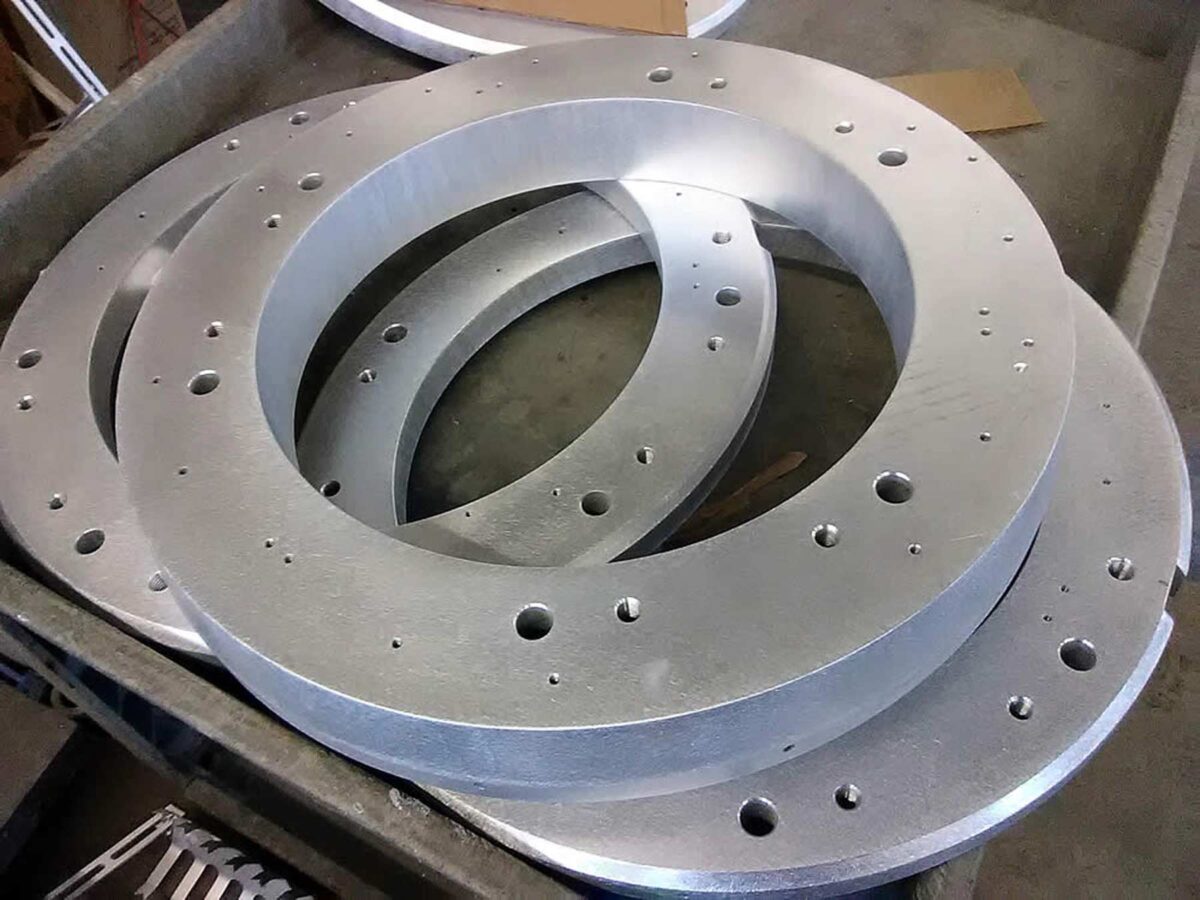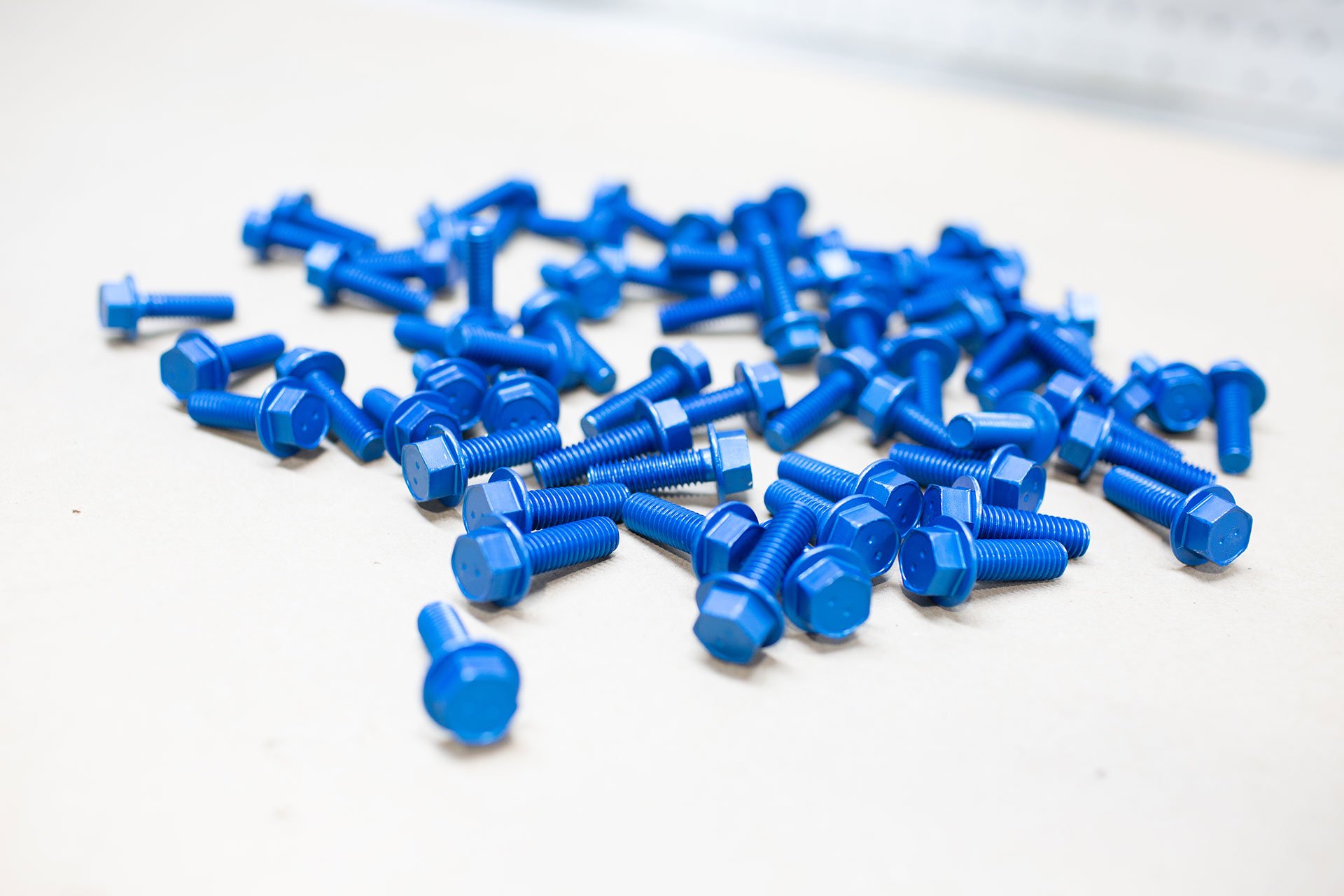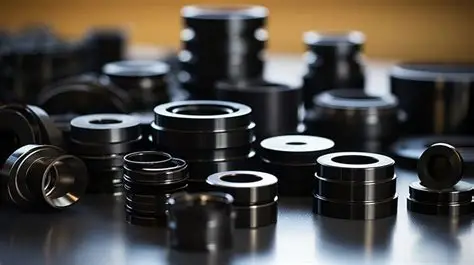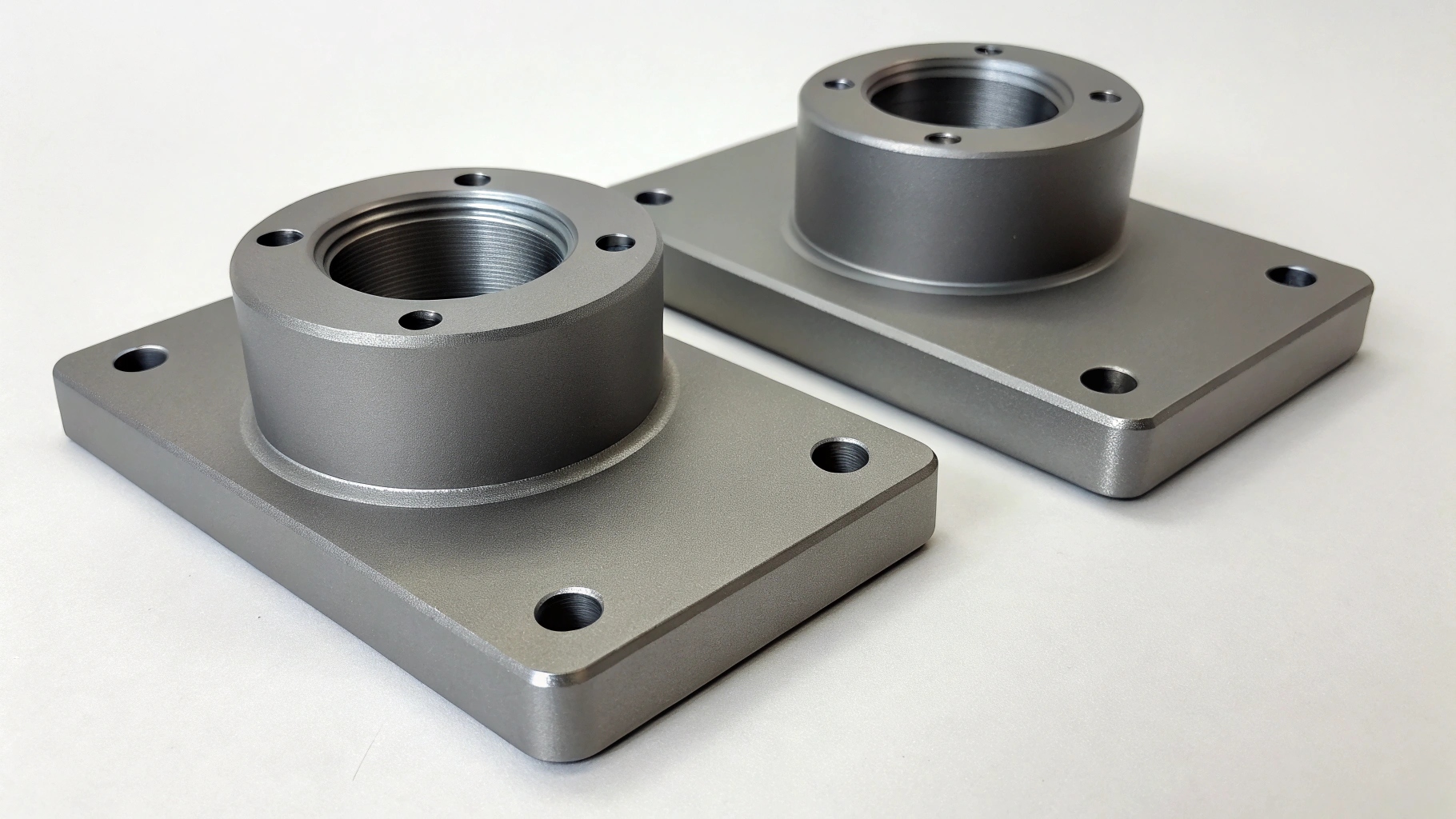The Complete Guide to Custom Parts Machined Inconel Alloys: Precision Manufacturing for Extreme Environments
Introduction to Inconel Alloys in Precision Machining
Inconel alloys represent the pinnacle of material science for applications demanding exceptional performance in extreme environments. These nickel-chromium-based superalloys have become indispensable across aerospace, nuclear, chemical processing, and energy industries where high-temperature strength, superior corrosion resistance, and excellent mechanical properties are non-negotiable requirements. The global market for custom parts machined Inconel components continues to expand rapidly, driven by increasing demands for reliable performance in increasingly challenging operational conditions.
Custom machining of Inconel alloys requires specialized expertise, advanced equipment, and deep understanding of these materials’ unique characteristics. As a CNC machining service provider with extensive experience in superalloy processing, we’ve developed proprietary techniques for manufacturing precision Inconel components that meet the most stringent industry standards while maintaining cost-effectiveness and timely delivery.
Our expertise in custom parts machined Inconel ensures that we deliver high-quality components tailored to your specific needs.
Material Properties and Grades of Inconel Alloys
Overview of Common Inconel Grades
Inconel alloys offer varying properties tailored to specific application requirements:
Table: Comparison of Common Inconel Alloys for Machined Components
| Alloy Grade | Key Composition | Tensile Strength (MPa) | Max Service Temperature (°C) | Primary Applications | Machinability Rating |
|---|---|---|---|---|---|
| Inconel 600 | Ni-Cr-Fe | 550-655 | 700 | Chemical processing, furnace components | Moderate |
| Inconel 601 | Ni-Cr-Fe-Al | 650+ | 1150 | Heat treatment equipment, industrial furnaces | Moderate |
| Inconel 617 | Ni-Cr-Co-Mo | 670-780 | 1100 | Gas turbines, heat exchangers | Difficult |
| Inconel 625 | Ni-Cr-Mo-Nb | 830-1030 | 980 | Marine applications, aerospace components | Challenging |
| Inconel 686 | Ni-Cr-Mo-W | 760-890 | 1000 | Chemical processing, pollution control | Difficult |
| Inconel 690 | Ni-Cr-Fe | 655-795 | 1000 | Nuclear steam generators, waste processing | Moderate |
| Inconel 718 | Ni-Cr-Fe-Nb | 1240-1440 | 700 | Aerospace engines, turbine components | Moderate |
| Inconel X-750 | Ni-Cr-Fe-Nb | 930-1290 | 700 | Gas turbine parts, rocket engines | Challenging |
Key Material Properties
Inconel alloys share several characteristics that make them ideal for extreme environments:
-
Excellent Oxidation Resistance: Formation of stable chromium oxide layer protects against oxidation up to extremely high temperatures
-
Superior Corrosion Resistance: Outstanding performance in acidic, alkaline, and chloride-containing environments
-
High-Temperature Strength: Maintain mechanical properties at elevated temperatures where most alloys would fail
-
Creep Resistance: Exceptional resistance to deformation under sustained mechanical stress and high temperatures
-
Thermal Fatigue Resistance: Withstand repeated thermal cycling without cracking or degradation
CNC Machining Challenges with Inconel Alloys
Material-Related Machining Difficulties
Machining Inconel alloys presents unique challenges that require specialized approaches:
Work Hardening: Inconel alloys rapidly harden during machining operations due to their nickel-chromium matrix and precipitation hardening characteristics. This can lead to tool deflection, dimensional inaccuracy, and reduced surface quality if not properly managed.
High Cutting Forces: The high strength and toughness of Inconel alloys at elevated temperatures require substantial cutting forces, necessitating rigid machine tools and secure workpiece fixturing.
Abrasive Wear: The presence of hard carbide particles and intermetallic phases in Inconel causes significant abrasive wear on cutting tools, reducing tool life and increasing machining costs.
Heat Generation: The low thermal conductivity of Inconel alloys causes heat to concentrate at the cutting edge rather than being carried away by chips, leading to premature tool failure and potential workpiece damage.
Technical Solutions for Machining Challenges
Table: Technical Solutions for Inconel Machining Challenges
| Machining Challenge | Impact on Process | Recommended Solutions | Expected Improvement |
|---|---|---|---|
| Work Hardening | Tool deflection, poor surface finish | Sharp tools, positive rake angles, increased feed rates | 40-60% improvement in surface quality |
| High Cutting Forces | Machine vibration, tool breakage | Rigid setup, reduced radial engagement, climb milling | 30-50% reduction in vibration issues |
| Abrasive Wear | Short tool life, increased cost | Specialized tool coatings (AlTiN, TiAlN), carbide substrates | 200-300% increase in tool life |
| Heat Generation | Thermal damage, dimensional errors | High-pressure coolant, reduced cutting speeds, thermal management | 50-70% reduction in thermal effects |
| Built-Up Edge | Poor surface finish, dimensional errors | Optimized cutting parameters, specialized tool geometries | Elimination of built-up edge formation |
Advanced Machining Techniques for Inconel Alloys
Turning Operations
Turning Inconel requires specific tool geometries and parameters:
Table: Turning Parameters for Inconel Alloys
| Operation Type | Cutting Speed (m/min) | Feed Rate (mm/rev) | Depth of Cut (mm) | Insert Geometry | Surface Finish (Ra μm) |
|---|---|---|---|---|---|
| Rough Turning | 20-30 | 0.15-0.25 | 1.5-2.5 | Negative rake, strong geometry | 3.2-6.3 |
| Finish Turning | 30-45 | 0.08-0.15 | 0.2-0.5 | Positive rake, sharp edge | 0.8-1.6 |
| Precision Turning | 15-25 | 0.04-0.08 | 0.1-0.3 | Honed edge, specialized coating | 0.4-0.8 |
| Thread Turning | 20-35 | Pitch dependent | 0.1-0.3 | Full-profile thread insert | 0.8-1.6 |
| Grooving | 15-25 | 0.05-0.12 | Tool width | Chipbreaker geometry | 1.6-3.2 |
Milling Operations
Milling Inconel demands specialized approaches to manage heat and tool wear:
Table: Milling Parameters for Inconel Alloys
| Milling Operation | Cutting Speed (m/min) | Feed Rate (mm/tooth) | Axial Depth (mm) | Radial Depth (mm) | Tool Material |
|---|---|---|---|---|---|
| Roughing | 25-35 | 0.08-0.12 | 1.5-2.5 | 0.5-0.7 | Micrograin carbide |
| Finishing | 35-50 | 0.04-0.08 | 0.2-0.5 | 0.1-0.3 | Submicron carbide |
| High-Performance | 50-70 | 0.12-0.18 | 1.0-1.5 | 0.3-0.5 | PCD or CBN |
| Slotting | 20-30 | 0.06-0.10 | 1.0-2.0 | Full slot | Tough carbide |
| Contouring | 30-45 | 0.05-0.09 | 0.5-1.0 | 0.2-0.4 | Coated carbide |
Drilling and Hole-Making
Drilling Inconel requires specialized techniques to maintain hole quality and tool life:
-
Peck Drilling: Essential for deep holes to break chips and allow heat dissipation
-
High-Pressure Coolant: Critical for chip evacuation and temperature control
-
Slow Speeds: Reduced rotational speeds to manage heat generation
-
Specialized Geometries: Drill points optimized for nickel alloys to reduce walking and improve hole quality
Tooling Selection for Inconel Machining
Cutting Tool Materials
Tool material selection is critical for successful Inconel machining:
Carbide Tools:
-
Micrograin Carbide: Excellent for roughing operations, good fracture resistance
-
Submicron Carbide: Superior for finishing, better edge retention
-
Coated Carbide: AlTiN, TiAlN, or AlCrN coatings for improved wear resistance
Advanced Tool Materials:
-
Polycrystalline Diamond (PCD): Exceptional wear resistance for high-volume production
-
Cubic Boron Nitride (CBN): Excellent for hard turning operations
-
Ceramic Inserts: High-speed capabilities for certain finishing operations
Tool Geometry and Coatings
Optimized tool geometry significantly improves Inconel machining:
-
Rake Angles: Positive rake angles reduce cutting forces and work hardening
-
Clearance Angles: Adequate clearance prevents rubbing and heat generation
-
Edge Preparation: Honed edges improve strength and reduce chipping
-
Chipbreakers: Designed specifically for the stringy chips produced by nickel alloys
Quality Assurance and Metrology
Inspection Techniques
Precision measurement of Inconel components requires specialized approaches:
-
Coordinate Measuring Machines (CMM): For comprehensive geometric verification with micron-level accuracy
-
Optical Comparators: For rapid 2D measurement of critical features and profiles
-
Surface Roughness Measurement: Quantitative analysis of surface texture parameters
-
Non-Destructive Testing: Dye penetrant, ultrasonic, or eddy current testing for defect detection
Certification and Documentation
Aerospace and nuclear applications require complete documentation:
-
Material Certifications: Traceability to melt heat numbers and material certifications
-
First Article Inspection: Comprehensive initial part validation
-
Process Documentation: Complete records of machining parameters and inspection results
-
NDE Reports: Non-destructive examination results for critical components
Applications and Case Studies
Case Study 1: Aerospace Turbine Component
Challenge: Machine complex turbine seal components from Inconel 718 with ±0.025mm dimensional tolerance and Ra 0.4μm surface finish for a jet engine application, while maintaining material properties in critical stress areas.
Solution: Implemented 5-axis CNC machining with specialized toolpaths and high-pressure coolant through spindle. Used progressive roughing strategy with stress-relief cycles between machining operations. Employed cryogenic cooling during finishing operations to maintain dimensional stability.
Results: Achieved 99.8% dimensional compliance with all critical features within specification. Surface finish measured Ra 0.3-0.4μm without manual polishing. The components passed all structural tests and metallurgical examinations without requiring additional heat treatment.
Case Study 2: Nuclear Reactor Component
Challenge: Produce control rod guide tubes from Inconel 690 with exceptional corrosion resistance and dimensional stability for nuclear reactor application, requiring complete documentation and traceability.
Solution: Utilized precision boring and turning operations with specialized tooling. Implemented strict process controls and comprehensive inspection protocols. Applied electropolishing for final surface enhancement and corrosion resistance improvement.
Results: Components exceeded all corrosion resistance requirements with zero defects in ultrasonic testing. Achieved surface finish better than Ra 0.2μm in critical flow areas. The manufacturing process received nuclear quality certification and has been adopted for production use.
Case Study 3: Chemical Processing Equipment
Challenge: Manufacture large valve bodies from Inconel 625 for severe service chemical processing applications, requiring complex internal passages and corrosion-resistant surfaces throughout.
Solution: Employed multi-axis machining with specialized boring tools for internal features. Developed custom tooling for hard-to-reach areas. Implemented aggressive roughing with light finishing passes to maintain efficiency while achieving required surface quality.
Results: Reduced machining time by 35% compared to previous methods while improving surface quality. Components demonstrated exceptional corrosion resistance in field testing and have exceeded service life expectations in harsh chemical environments.
Design Guidelines for Inconel Components
Design for Manufacturability
Optimizing designs for Inconel machining:
-
Radii and Corners: Generous radii reduce stress concentrations and improve tool life
-
Wall Thickness: Uniform wall thickness minimizes distortion during machining
-
Feature Accessibility: Design features for tool access with standard tooling
-
Tolerance Rationalization: Specify tight tolerances only where functionally required
Cost Optimization Strategies
Reducing manufacturing costs without compromising quality:
-
Material Selection: Choose appropriate Inconel grade for application requirements
-
Standard Features: Use standard hole sizes, thread types, and fillet radii
-
Batch Processing: Combine multiple parts in single setups when possible
-
Secondary Operations: Minimize additional processing requirements through design
Future Trends in Inconel Machining
Advanced Manufacturing Technologies
Emerging technologies are transforming Inconel component manufacturing:
-
Hybrid Manufacturing: Combining additive manufacturing with CNC machining for complex geometries
-
AI-Optimized Machining: Machine learning algorithms for predictive tool wear and adaptive parameters
-
Laser-Assisted Machining: Localized heating to reduce cutting forces and improve machinability
-
Ultrasonic Vibration Assistance: High-frequency vibration to reduce cutting forces and improve surface finish
Sustainability Improvements
Environmental considerations are driving process innovations:
-
Coolant Management: Advanced filtration and recycling systems
-
Tool Life Optimization: Extended tool life through better coatings and geometries
-
Energy Efficiency: Reduced power consumption through optimized machining parameters
-
Waste Reduction: Improved material utilization through nesting and optimization
Conclusion: The Strategic Value of Professional Inconel Machining
Custom machining of Inconel alloys represents one of the most challenging yet rewarding capabilities in precision manufacturing. The exceptional properties of these superalloys make them indispensable for critical applications where failure is not an option. Successfully manufacturing components from these materials requires specialized expertise, advanced equipment, and rigorous quality control processes.
The future of Inconel machining will be shaped by advancements in tooling technology, process optimization, and digital integration, enabling more efficient production of increasingly complex components. As industries continue to push the boundaries of performance in extreme environments, the demand for precision-machined Inconel components will only continue to grow.
For engineers and designers working with these exceptional materials, partnering with an experienced machining provider is not just a manufacturing decision—it’s a strategic imperative that can significantly impact product performance, reliability, and success in the most demanding applications.
For specific applications or to discuss your Inconel machining requirements, please contact our technical team for personalized assistance and process recommendations: https://www.jlypt.com/cnc-machining-services/

